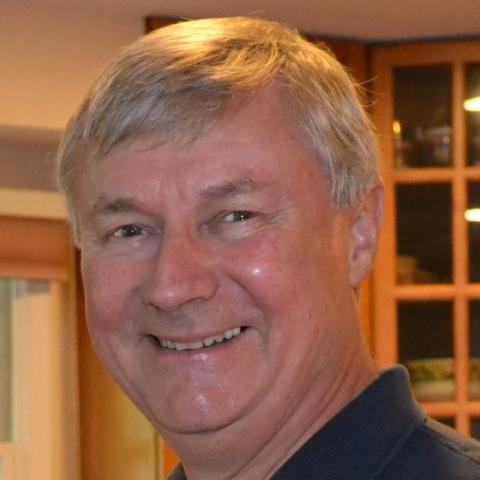Christopher Davis

Honoring the Life of Professor Christopher Davis
The ECE Community is saddened by the passing of Christopher Davis, Minta Martin Professor of Engineering and Professor of Electrical and Computer Engineering, on April 1st, 2023 after a brief illness. He is survived by his wife Mary, and their three children, Alex, Mark and Fiona.
Davis joined the ECE Department in 1975. Originally from Great Britain, Davis received a BA with Honors in Natural Sciences from the University of Cambridge in 1965. He then earned his MA degree from the University of Cambridge and a Ph.D. in Physics from the University of Manchester. Prior to joining ECE, he served as an Instructor and Research Associate at Cornell University, and as a Senior Visiting Fellow at the University of Cambridge.
During his time at the University of Maryland, Davis was recognized with numerous awards, including the Jimmy H.C. Lin Award for Innovation (2015), the Clark School of Engineering Senior Faculty Outstanding Research Award (2014), the Clark School of Engineering Poole and Kent Senior Faculty Teaching Award (2012), the University of Maryland Invention of the Year Award in Information Science (2000), the UMD Distinguished Scholar-Teacher Award (1989-1990) and the ECE Department’s George Corcoran Award (1978) for young faculty who have shown exemplary contributions to teaching and educational leadership.
Other honors include the Technology Education Award of Distinction awarded by the Technology Education Association (1994), the NASA Certificate of Recognition for Fiber Injection Locked Broad Area Laser (1992), the AT&T/ASEE Award for Excellence in Engineering Education (1990), and the National Science Foundation Creativity Award (1983). He was a Fellow of IEEE and Fellow of the Institute of Physics.
Davis was the author or co-author of 14 chapters in books, 215 referenced journal articles and over 295 conference papers. He is the author of “Lasers and Electro-Optics,” published by Cambridge Unviersity Press, and co-author with Jack Moore and Mike Coplan of the best-selling text “Building Scientific Apparatus”.
Many research areas benefited greatly from Professor Davis’s work, particularly in the fields of free space optical and directional RF communication systems, atmospheric turbulence, advanced surveillance systems, plasmonics, chemical and biological sensors, interferometry, optical systems, bioelectromagnetics, and RF dosimetry. Most recently, his research focused on optical and RF directional wireless, real-time advanced surveillance systems with “event” detection, the optical properties of nanostructures where surface plasmons can be excited, laser interferometry, dielectrometry, fiber sensors and biosensors, magnetooptics, optical trace detection, atmospheric turbulence, optical communication systems and devices, and studies of the biological effects of non-ionizingradiation.
This article will be updated shortly with further remembrances of Professor Davis.